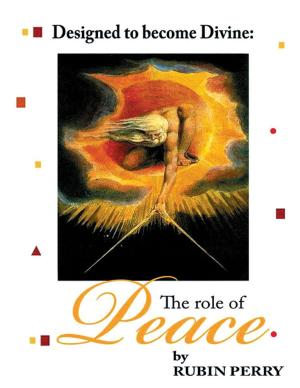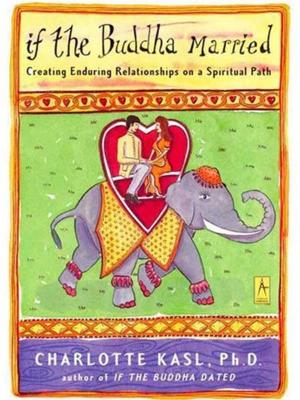The Epic of Gilgamesh, the Teachings of Siduri and How Siduri's Ancient Advice Can Help Guide Us to a Happier Life
Nonfiction, Religion & Spirituality, Philosophy, Ancient, Health & Well Being, Self Help, Self Improvement| Author: | Peter Dyr | ISBN: | 9781301083473 |
| Publisher: | Peter Dyr | Publication: | January 14, 2013 |
| Imprint: | Smashwords Edition | Language: | English |
| Author: | Peter Dyr |
| ISBN: | 9781301083473 |
| Publisher: | Peter Dyr |
| Publication: | January 14, 2013 |
| Imprint: | Smashwords Edition |
| Language: | English |
Across the span of recorded history, at the birth of writing and civilization, there was the Epic of Gilgamesh. This seminal tale of gods, kings, battles, friendship, loss, the fear of death, the search for immortality and advice on how one should live life, represents our first complete work of literature.
While the origin of the Epic of Gilgamesh is lost to the sands of time, it is probable that this story had been verbally transmitted for a very long time before the invention of writing, but we have no way of knowing when, where or why the story actually originated or even how many original contributors there were. What we do know is that the story encompassed a large number of concepts, ideas and philosophies, and was considered important enough that it was told from generation to generation for hundreds of years, before being immortalized in clay around four thousand years ago.
Unfortunately, the original "Old Babylonian" version of the Epic of Gilgamesh is incomplete, making it difficult for us to piece together the exact story our ancient ancestors considered so important. However, several critical fragments of the original Epic have been recovered and differ in significant ways from later more complete versions. One of the most fascinating of these original fragments is the Sippar tablet which was discovered near the city of Sippar, on the Euphrates river, upstream of the Babylonian region in present day Iraq. The Sippar tablet contains the earliest recorded advice, given by a beautiful young girl called Siduri, on how we should live our lives. Interestingly, in a later version of the Epic of Gilgamesh (referred to as the “Akkadian” version) Siduri’s advice was removed from the Epic and much of her original role was given to Utnapishtim, an immortal wise old man. One theory for the diminishment of Siduri’s role is that Siduri being young, female and working class (a wine maker), and Utnapishtim being old, male and high class (an immortal wise man) may have contributed, and may suggest possible differences between Sumerian and Akkadian culture. Specifically, this change may highlight a degree of ageism, sexism and/or classism in Akkadian culture, and the removal of Siduri's advice could represent the first recorded case of censorship.
Siduri's words were recorded long before any other religious text, including the Bible, the Koran or any eastern philosophies (including Buddhism) and represent a very different perspective to the religious texts used today. Siduri was pro-wine, pro-feasting, pro-music, pro-dancing, pro-joy, pro-sex and pro-family. Wouldn't the world be a better place if more people today would heed Siduri's ancient advice?
In this book I have re-introduced Siduri's teachings, and the original Old Babylonian fragments into the Epic of Gilgamesh, while using the later Akkadian text to fill in the gaps in the original story. I have tried to remain faithful to the original events, concepts and philosophies our ancient ancestors found so important. I have also included a discussion of Siduri’s teachings and how we can, if we so wish, live our lives according to Siduri’s original ancient advice.
In this updated Third Edition I have re-written the Akkadian prose to more closely resemble the shortened poetic verse of the Old Babylonian texts, added additional analysis of the rest of the Epic and included a new section at the end of the book that contains various informative discussions, from multiple contributors, regarding Siduri's philosophies and underlying concepts within the Epic of Gilgamesh. Discussions of Siduri and her philosophies are included in a few very short chapters at the beginning of the book, analysis of the rest of the Epic is incorporated into Chapter 6, the complete text for the Epic of Gilgamesh is contained within Chapters 7 to 9, and Chapter 10 contains the epilogue and the new multiple contributor discussions section.
Across the span of recorded history, at the birth of writing and civilization, there was the Epic of Gilgamesh. This seminal tale of gods, kings, battles, friendship, loss, the fear of death, the search for immortality and advice on how one should live life, represents our first complete work of literature.
While the origin of the Epic of Gilgamesh is lost to the sands of time, it is probable that this story had been verbally transmitted for a very long time before the invention of writing, but we have no way of knowing when, where or why the story actually originated or even how many original contributors there were. What we do know is that the story encompassed a large number of concepts, ideas and philosophies, and was considered important enough that it was told from generation to generation for hundreds of years, before being immortalized in clay around four thousand years ago.
Unfortunately, the original "Old Babylonian" version of the Epic of Gilgamesh is incomplete, making it difficult for us to piece together the exact story our ancient ancestors considered so important. However, several critical fragments of the original Epic have been recovered and differ in significant ways from later more complete versions. One of the most fascinating of these original fragments is the Sippar tablet which was discovered near the city of Sippar, on the Euphrates river, upstream of the Babylonian region in present day Iraq. The Sippar tablet contains the earliest recorded advice, given by a beautiful young girl called Siduri, on how we should live our lives. Interestingly, in a later version of the Epic of Gilgamesh (referred to as the “Akkadian” version) Siduri’s advice was removed from the Epic and much of her original role was given to Utnapishtim, an immortal wise old man. One theory for the diminishment of Siduri’s role is that Siduri being young, female and working class (a wine maker), and Utnapishtim being old, male and high class (an immortal wise man) may have contributed, and may suggest possible differences between Sumerian and Akkadian culture. Specifically, this change may highlight a degree of ageism, sexism and/or classism in Akkadian culture, and the removal of Siduri's advice could represent the first recorded case of censorship.
Siduri's words were recorded long before any other religious text, including the Bible, the Koran or any eastern philosophies (including Buddhism) and represent a very different perspective to the religious texts used today. Siduri was pro-wine, pro-feasting, pro-music, pro-dancing, pro-joy, pro-sex and pro-family. Wouldn't the world be a better place if more people today would heed Siduri's ancient advice?
In this book I have re-introduced Siduri's teachings, and the original Old Babylonian fragments into the Epic of Gilgamesh, while using the later Akkadian text to fill in the gaps in the original story. I have tried to remain faithful to the original events, concepts and philosophies our ancient ancestors found so important. I have also included a discussion of Siduri’s teachings and how we can, if we so wish, live our lives according to Siduri’s original ancient advice.
In this updated Third Edition I have re-written the Akkadian prose to more closely resemble the shortened poetic verse of the Old Babylonian texts, added additional analysis of the rest of the Epic and included a new section at the end of the book that contains various informative discussions, from multiple contributors, regarding Siduri's philosophies and underlying concepts within the Epic of Gilgamesh. Discussions of Siduri and her philosophies are included in a few very short chapters at the beginning of the book, analysis of the rest of the Epic is incorporated into Chapter 6, the complete text for the Epic of Gilgamesh is contained within Chapters 7 to 9, and Chapter 10 contains the epilogue and the new multiple contributor discussions section.















